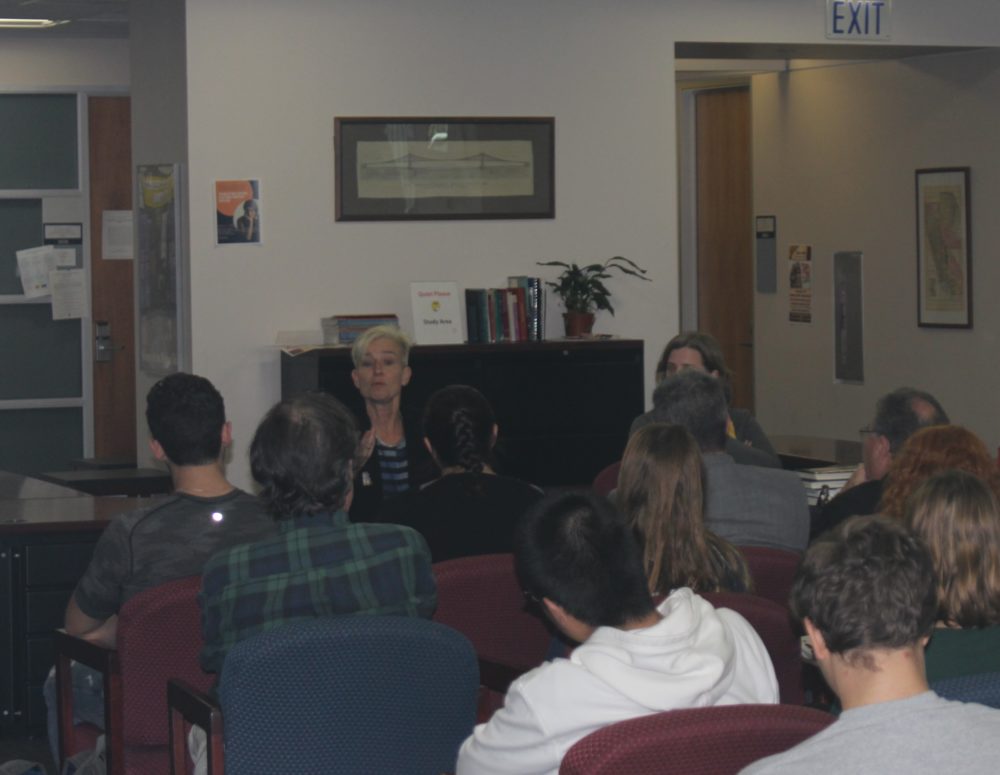
By Nathaniel Flores ’21
On November 9, 2017, the LMU History Department celebrated the 500th anniversary of the Reformation, which began when the German reformer Martin Luther publicly posted his Ninety-five Theses criticizing the Catholic Church in 1517 (on October 31). The event featured a conversation with historians Dr. Carina Johnson and Dr. Ulrike Strasser, moderated by LMU History Department Chair Elizabeth Drummond.
Johnson, a professor at Pitzer College and author of Cultural Hierarchy in Sixteenth-Century Europe: The Ottomans & the Mexicans, and Strasser, a professor at UCSD and author of State of Virginity: Gender, Politics, and Religion in a Catholic State, each spoke about their work in the context of the Reformation. Strasser’s scholarship brings together two concepts: questions concerning state formation as well as questions related to gender and sexuality. Strasser examines women of the 16th century who were unmarried and remained virginal, highlighting specific examples of women in enclosed convents and the regulation of the sexuality of poor women. Strasser’s book also investigates the sexualization of the female body, which she attributes to Luther, who advocated that sexuality was a natural urge that should not be repressed. Johnson’s work aims to establish a connection between the cultural and intellectual changes of the Reformation and how they influenced European encounters with the Aztecs and Ottoman Empire throughout the 16th century, an area of scholarship which she believes was severely underdeveloped.
The two speakers further discussed potential similarities and links between the Protestant Reformation and the Catholic (Counter-)Reformation. Strasser believes that parallels could be established between the two movements because they both drew upon one another and featured similar outcomes. The event then shifted to a question and answer session with the audience. The audience questioned whether the Reformation was an extension of a specifically German culture. The panel collectively agreed, affirming that the Reformation was very German in nature and tapped into German understandings of common good and civility. Thus, the Reformation is very much a German story rather than a Luther story. According to the panel, Luther’s ideas were not anything new; others held similar views before him. The event concluded with a final question about what Strasser and Johnson saw as the future of this field, and both emphasized the need for diversity because this field is still largely shaped by Eurocentric narratives.



